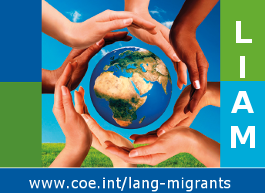Tailor-made courses
Tailor-made courses are designed to take account of particular learner characteristics or requirements. They respond to what has always been one of the Council of Europe’s central concerns: that language courses should meet the needs of learners. Following the lead given in the 1970s by the Council of Europe’s own pioneering work on the analysis of language learners’ needs, it is helpful to distinguish between social and individual needs.
Social needs
Social needs (sometimes called objective needs) are generally defined in terms of the communicative tasks that language learners will be required to perform in a given situation. For example, someone who wants to work as a waiter in a foreign country needs (among other things) to know how to greet customers, explain the menu to them and answer questions about it, take their orders, and respond to complaints. Each of these activities can be described in terms of the vocabulary the learner needs and the receptive, productive and interactive routines he or she must master.
Individual needs
Individual needs (sometimes called subjective needs) are the needs that the learner experiences in the language learning situation. Accordingly, they have to do with factors like attitude and motivation, learning style, learning aptitude and learning skills. Attitude and motivation may well receive a positive boost if the course in question is based on an adequately detailed analysis of learners’ objective needs, because that helps to ensure a clear learning purpose. But those subjective needs that have to do with the learning process itself can only emerge as the course proceeds. In other words, whereas an analysis of learners’ objective needs provides a basis for programme planning, eliciting and responding to subjective needs is a task for the teacher. Because subjective needs change as learning progresses, responding to them is a never-ending task.
DL
Related resources
- Education: tailor-made or one size fits all (case study) Elwine Halewijn, Annelies Houben and Heidi De Niel, reports on a project commissioned by the Nederlandse Taalunie that developed tailor-made courses on the basis of a detailed analysis of migrant learners’ social needs;
EN FR
- Responding to the language needs of adult refugees in Ireland: an alternative approach to teaching and assessment (case study), David Little. Description of the approach developed by Integrate Ireland Language and Training, which brought social and individual needs into interaction with one another.
EN FR
- The language needs of adult immigrants, 1973, D.A. Wilkins, Project “A European unit/credit system for modern language learning by adults”, Council of Europe
EN
- Language learning, teaching and assessment and the integration of adult immigrants. The importance of needs analysis, 2008, Piet van Avermaet, Sara Gysen
EN FR
- Tailoring language provision and requirements to the needs and capacities of adult migrants, 2008, Hans-Jürgen Krumm, Verena Plutzar
EN FR
- Living together in diversity - Linguistic integration in Flanders, 2008, Reinhilde Pulinx
EN FR



